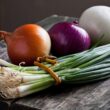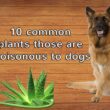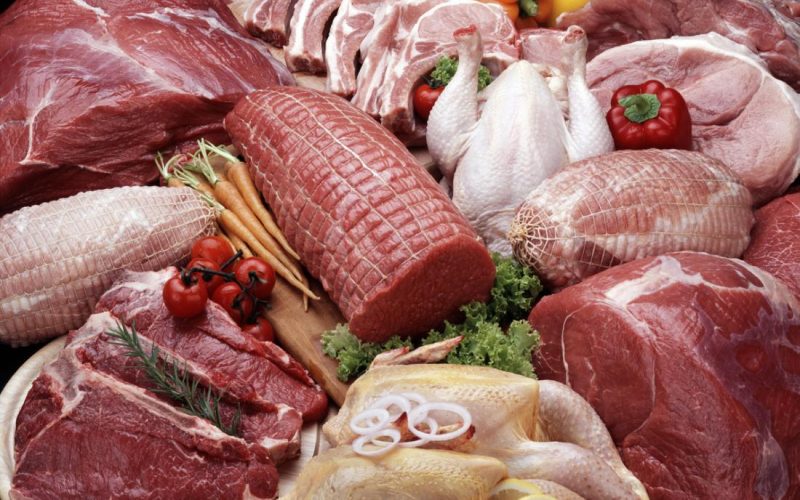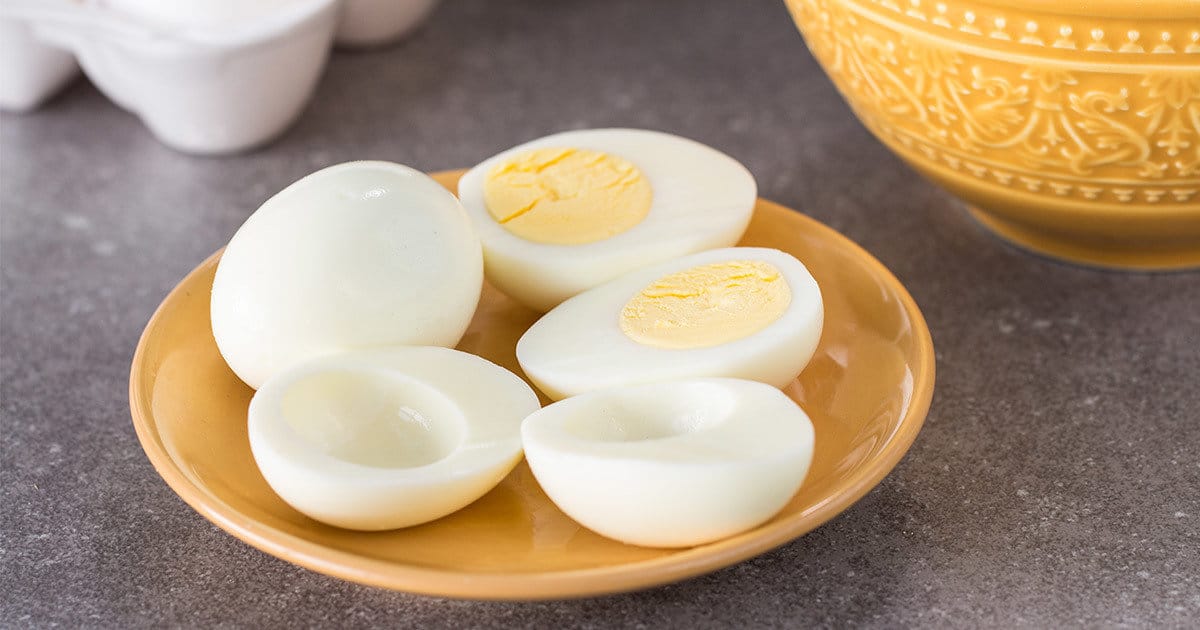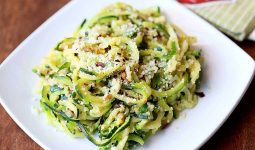GERD diet and nutrition is something you might be interested in if you’ve had to deal with acid reflux.
Acid reflux happens when you experience an acid backflow from this stomach all the way into your oesophagus. This is not an uncommon occurrence, but it can cause some serious complications or worrying symptoms, like heartburn.
One of the reasons why this may happen is that the person’s lower esophageal sphincter (LES) has become damaged or weakened. The LES will normally close to prevent food that have reached the stomach from traveling back up into the esophagus.
The food we eat directly affects the amount of acid that your stomach will produce. This is the simple reason why it is possible to control gastroesophageal reflux disease (GERD), which happens to be a chronic type of acid reflux, just by eating the right type of foods and by eating them in the right quantity.
Foods that may help to reduce your GERD symptoms
Acid reflux symptoms may stem from stomach acid gaining contact with the esophagus and leading to pain and irritation.
If you know you have too much acid in there, you can incorporate some of these specific foods options to your diet as a way to manage the discomforting symptoms of acid reflux.
Please note that none of the foods listed here will cure your condition, and if you decide to use any of these specific foods as a way to soothe your symptoms, it has to be based on your personal experiences with them.
Vegetables
Most people already know that vegetables are naturally low in sugar and fat, and they will not only help you maintain what good weight, but possibly help to reduce stomach acid.
Some good vegetable options include broccoli, green beans, asparagus, leafy greens, cauliflower, cucumbers, and potatoes.
Ginger
Ginger is not only a great spice, it comes with natural anti-inflammatory properties, and works as a natural treatment for heartburn and many other gastrointestinal issues.
It is OK to add some grated or sliced pieces of ginger root to food recipes, smoothies or just make and drink some ginger tea to ease the symptoms.
Oatmeal
Oatmeal is a personal breakfast favorite, not just because it is a whole grain, but because it works great for my digestion since it is a wonderful source of fiber.
Oatmeal can easily absorb the acid in your stomach and greatly reduce symptoms of acid reflux.There are other fiber options you can explore, including whole-grain rice and whole-grain breads.
Noncitrus fruits
Citrus fruits like oranges and limes contain a lot of acid, and can be dangerous for you. Noncitrus fruits are the best option if you want to be on the GERD diet. Opt for melons, apples, bananas, and pears, these options are less likely to trigger symptoms of acid reflux than acidic fruits.
Lean meats and seafood
Meat is great for people on the GERD diet. Lean meats, like turkey, chicken, fish, and other seafoods, contain low-fat and will reduce the symptoms of acid reflux. You can try these foods grilled, baked, broiled, or even poached.
Egg whites
Egg whites may not be the most delicious part of an egg, but they are a good option if you are on the GERD diet. Stay away from the egg yolk no matter how tempted you get. Yolks are high in fat, and they may likely trigger some acid reflux symptoms.
Healthy fats
The sources of healthy fats in the GERD diet include walnuts, avocados, flaxseed, sesame oil, olive oil and sunflower oil. You can reduce your intake of all trans fats and saturated fats by replace them with the healthier fat options above.
Finding your triggers
Heartburn is one of the most common symptom of GERD and acid reflux. You may get a burning sensation in your chest or stomach after you eat a while meal or some specific foods. Other symptoms of GERD also includes regurgitation or vomiting as acid moves into your esophagus.
Other symptoms include
- Sore throat
- Dry cough
- Bloating
- Difficulty swallowing
- Burping or hiccups
- Lump in the throat
Many of the people who have GERD have found out that specific foods may trigger their symptoms. There is no single diet has been discovered to prevent all the symptoms of GERD, and because our systems work differently, food triggers are different for each individual.
To identify your individual triggers, it is easier to keep a food diary so you can track the following:
- What time of day you eat?
- What foods you eat?
- What symptoms you experience?
Keep that diary to track your food for at least one week. It is helpful for you to track your foods consumption for an extended period of time if you are not on a GERD diet.
With the diary, you should be able to identify particular drinks and foods that will trigger your GERD symptoms. Also, the nutrition and diet advice in this article is just a starting paint to how you plan your meals.
This is a guide that you can use together with recommendations from a medical practitioner and your good journal. The goal here is to help you control and minimize your symptoms.
Some of the most common trigger foods for people with reflux
Even though doctors have debated which foods genuinely cause acid reflux symptoms, some foods have been discovered to cause complications for many people. In order for you to control your symptoms, you may have to begin by avoiding any of the following foods.
High-fat foods
Foods that are fried and fatty can lead to the LES relaxing, and that will allow for more stomach acid to run back up into your esophagus. People who eat these foods may also delay stomach emptying.
Feeding on high-fat foods will put you at greater risk for acid reflux symptoms, so if you reduce your total daily of fat, it may help a great deal.
The foods below have a very high-fat content. Make sure to avoid these foods or eat them very sparingly:
- Full-fat dairy products, like whole milk, butter, regular cheese, and even sour cream
- French fries and onion rings
- Bacon fat, ham fat, and lard
- Fatty or fried cuts of beef, pork, or lamb
- Desserts or snacks, such as potato chips and ice-cream
- Gravies, cream sauces, and creamy salad dressings
- Tomatoes and citrus fruit
- Oily and greasy foods
Fruits and vegetables are quite vital if you want a healthy diet. But some particular fruits may worsen or cause GERD symptoms, especially for fruits that are highly acidic.
If you are one of those people who have frequent acid reflux, you should eliminate or reduce your intake of the following foods:
- Grapefruit
- Oranges
- Lemons
- Pineapple
- Limes
- Tomatoes
- Salsa
- Chocolate
- Tomato sauce or other foods that use it, such as pizza and chili
- Chocolate have an ingredient known as methylxanthine. It has been revealed to significantly increase acid reflux and relax the smooth muscle in the LES.
- Onions, garlic and spicy foods
- Foods that are spicy and tangy, like garlic and onions, usually trigger symptoms of heartburn in many people.
These foods will not trigger acid reflux in everyone. However, if you are one of the people who eat a lot of garlic or onions, make sure that you carefully track your meals in your diary.
Some of the foods we have ever mentioned, along with otherspicy foods, may trouble you more than some simple foods do.
Caffeine
While coffee is a great way to start a work day, people who have acid reflux may notice that their symptoms begin to act up after they have their morning coffee. The reason for this is that caffeine is a well known trigger of GERD or acid reflux.
Mint
Mint and other products that contain mint flavoring, such as breath mints and chewing gum, can also possibly trigger the symptoms of acid reflux.
Other options
While the above lists above are of common triggers, some people may have unique intolerances to some specific foods.
You just might consider getting rid of the following foods for up to three or four weeks just to see if your symptoms improve: flour-based products such as bread and crackers, dairy, and whey protein.
Making lifestyle changes
In addition to making efforts to control the symptoms of reflux with nutrition and diet, It is possible that you manage your symptoms via lifestyle changes. Try the tips below:
At worse, you can take antacids and any other medications that will help reduce acid production. (Note that an overuse can result in negative side effects.) Note that you must talk to your doctor first.
- Maintain a healthy weight
- Avoid alcohol
- Chew only bubble gums that is not spearmint or peppermint flavored
- Don’t overeat, and eat slowly
- Stop smoking
- Avoid tight clothing
- Remain upright for a minimum of two hours after eating
- Do not eat anything for about three to four hours before you go to bed
- You should get pillows to raise the head of your bed as high as four to six inches to help reduce the symptoms or acid reflux while sleeping
What the study says?
No unique diet has been officially proven to prevent GERD. Nevertheless, some specific foods may help to ease symptoms in some individuals.
Research shows that increased fiber intake, specifically in the form of fruits and vegetables, may protect against GERD. But scientists aren’t yet certain how fiber prevents GERD symptoms.
It is a good idea for you to increase your daily dietary fiber consumption. In addition to helping ease the GERD symptoms, dietary fiber also greatly reduces the risk of:
- uncontrolled blood sugar
- high cholesterol
- hemorrhoids, as well as other bowel problems
Talk to your medical doctor if you have any questions you’d like to ask about whether or not certain foods should become a part of your GERD diet.
Remember also, that the foods that help to improve the symptoms of acid reflux for one person may be very problematic for another person else.
Working with your medical doctor can help you to develop a GERD diet to lessen or control your symptoms.
What’s the outlook for GERD?
People who have GERD can usually easily manage symptoms with very simple lifestyle changes and some over-the-counter medications.
If you do not notice any improvements after using medications and doing some lifestyle changes make sure to talk to your doctor. Your doctor can also recommend some prescription medications, or surgery in severe cases.
Let us know what you think about the GERD diet by leaving a comment below.
